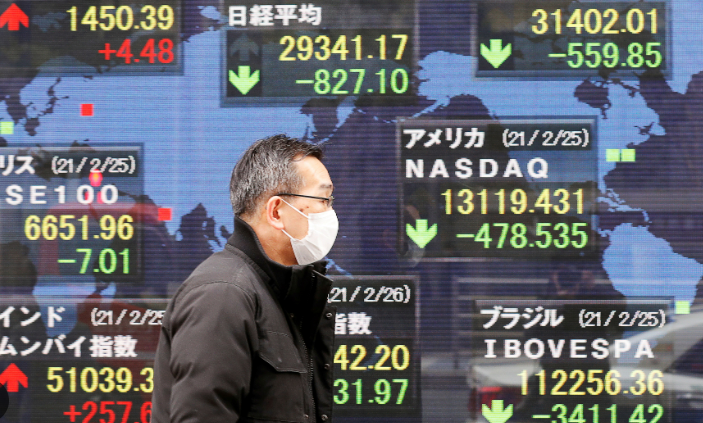Asian Stocks Higher, Consumer Inflation Expectations Cooling
On May 16, most Asian markets were buoyed by record highs on Wall Street overnight, with interest rates forecast to be cut in 2024 due to weaker consumer inflation expectations.

On May 16, most Asian markets were driven by the record highs set by Wall Street overnight, with market expectations of a rate cut in 2024 due to weakening consumer inflation expectations. Despite challenges faced by places like China and Japan, the strong performance from Wall Street has overshadowed these negative factors in the Asian markets, especially amidst Japan's economic contraction and the Biden administration's increased trade sanctions against Beijing.
On May 15, with consumer price index data lower than expected, Wall Street indices hit historic highs, sparking expectations among traders for a rate cut in September. US stock index futures continued to rise during Asian trading.
Japan GDP growth remained weak
The Nikkei 225 index rose by 0.6%, largely benefiting from growth in technology stocks, comparable to its counterparts in the US. However, other industries more affected by the economy saw declines, resulting in the Nikkei 225 index's technical weighting being lower than the Nikkei 225 index.
However, Japanese GDP data showed a significant decline in the country's economy in the first quarter of 2024, far exceeding expectations due to sustained inflation and lagging wages leading to a sharp drop in private consumption.
Due to uncertainty about the outlook for the Japanese economy, businesses hesitated, and capital expenditure also dropped significantly. These unfavorable data sparked more concerns about whether the Bank of Japan can tighten policy this year. While loose policies benefit the stock market, the worsening economy also brings additional challenges.
Chinese market weakened
On May 16, the Shanghai Composite Index and the Shenzhen Component Index rose by nearly 0.3%, lagging behind their counterparts in other regions. The Hang Seng Index in Hong Kong rose by 0.6%, lower than other Asian regions. The Biden administration's imposition of higher tariffs on many key Chinese industries including electric cars, pharmaceuticals, and solar energy has damaged public opinion towards China.
Although the direct economic impact of tariffs is not yet clear, Beijing is angry and has promised retaliatory actions. Such actions could trigger a trade war between the world's two largest economies.
Other Asian markets grew
Australia's ASX 200 index performed well, rising by 1.8%, approaching record highs. Data on May 16 also showed an unexpected increase in Australia's unemployment rate, triggering hopes of a cooling labor market.
South Korea's KOSPI index rose by 0.8%, with technology stocks increasing.
Futures for India's Nifty 50 index indicate a good start, with tech companies expected to follow their global counterparts. However, investors may remain cautious ahead of the 2024 Indian elections.
Disclaimer: The views in this article are from the original Creator and do not represent the views or position of Hawk Insight. The content of the article is for reference, communication and learning only, and does not constitute investment advice. If it involves copyright issues, please contact us for deletion.